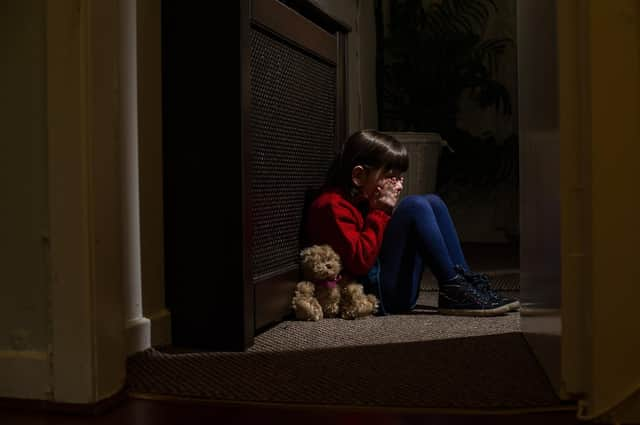Bereaved children need help and, right now, many are not getting it – Christine Jardine


And yes for much of the time, that is the way it has been. Brexit, China, the pandemic, war in Ukraine and the economic crisis. All posed both political and intellectual challenges. But what I hadn’t expected was to discover that my own personal experiences would be more useful than any academic or political research. That the lessons and pain of my past would loom large over everything I was involved in at Westminster – perhaps never more so than in the past few weeks.
In a conversation with my youngest sister, I discovered that we were both frustrated and disappointed to discover that somehow the pain being experienced by children losing a parent or carer is still not registering on either of our government’s registers. Here is the part of the this article where I should trot out the statistics to underline the scale of the problem.
Advertisement
Hide AdAdvertisement
Hide AdI should tell you how many children face the loss of someone close every year and how we help them. But I can’t do that because we don't know. There is no data. No way of knowing how many children in this country need support at any one time. Nobody in any of our arms of government or various official bodies is responsible for keeping track of whether the death of an individual will leave a child bereaved.
Nobody is responsible for offering confidential support and perhaps counselling for young people whose world has just been turned upside down. Schools are supportive but unless you have already crossed social services’ radar, they have no way of knowing if they are needed.
And we do have fantastic charities doing amazing work, but they have no way of reaching out to the children who need them because they don't know where they are. For me, that is unforgivable.
I know what it’s like. We lost our Dad when my sisters were 13 and eight. I was 20 and I thought I was an adult, but it was decades before I recognised the impact it had on all of us. When my own daughter, Mhairi, was eight, I watched her laughing with her Dad, sharing Harry Potter books, and thought about my younger sister and my Mum. How on Earth had they coped? And then when Mhairi was 13, I thought of my other sister and realised anew that I had been oblivious to the potential depth of her trauma.
We had fantastic people around us. Mum. The girls’ schools were great. But now I am left with questions about whether they needed something different. Something private. Specialists not part of their school routine and visible to peers who might be unintentionally cruel. After the conversation with my sister, I contacted Winston's Wish – a charity which supports children who have been bereaved.
They confirmed they want a change of attitude, a way of gathering that data that allows them to reach out and offer support to young people. After talking about the issue on TV, I was contacted by a charity which helps adults who bear the scars of not having received the help they needed when bereaved as a child.
They deal every day with the consequences of a shortcoming which, thankfully, there does seem to be some political understanding, if not yet sufficient will to address the issue properly.
A psychotherapist who contacted me said that she has spent 13 years trying to make the point that if we provided support when the grief begins we would not only help the children then but save them years of pain ahead. We would also take the pressure off our hard-pressed mental health services who currently have to deal with consequences for those who did not get help in the past.
Advertisement
Hide AdAdvertisement
Hide AdWhen I wrote to the Scottish Government, they seemed to think that they are already helping. They are, but as I said leaving it to schools is not enough. Similarly, the Home Office pointed to their strategy in schools. Again, that is not enough.
Yet when I raised it in Parliament, the Leader of the House agreed with me that something needs to be done to ensure we know where those children who need help are. Last week I sat down with the UK minister and we agreed something needs to be done. She was just not sure what.
This week I shall be speaking to more charities and working with my team to put suggestions to the UK Government and bring forward a private bill if necessary. I suspect there will be those who think that politicians should be focussing on other things at the moment: the economic crisis, the war in Ukraine, energy prices. Of course. But is anything as important as the well-being of our children? All of our children.
It’s strange but these past few weeks, I have looked back on the day my Dad died completely differently from before. Yes, it still hurts and as one of that unknown number who have carried their pain into adulthood, I now recognise the scars.
There has always been pride in who my sisters have become. But now there is also a determination to channel the experience into something to help those children who will know the same sense of loss and confusion as we did. Find a way of reassuring them that life can be OK. That the pain will get easier. For all of us.
Christine Jardine is the Scottish Liberal Democrat MP for Edinburgh West
Comments
Want to join the conversation? Please or to comment on this article.